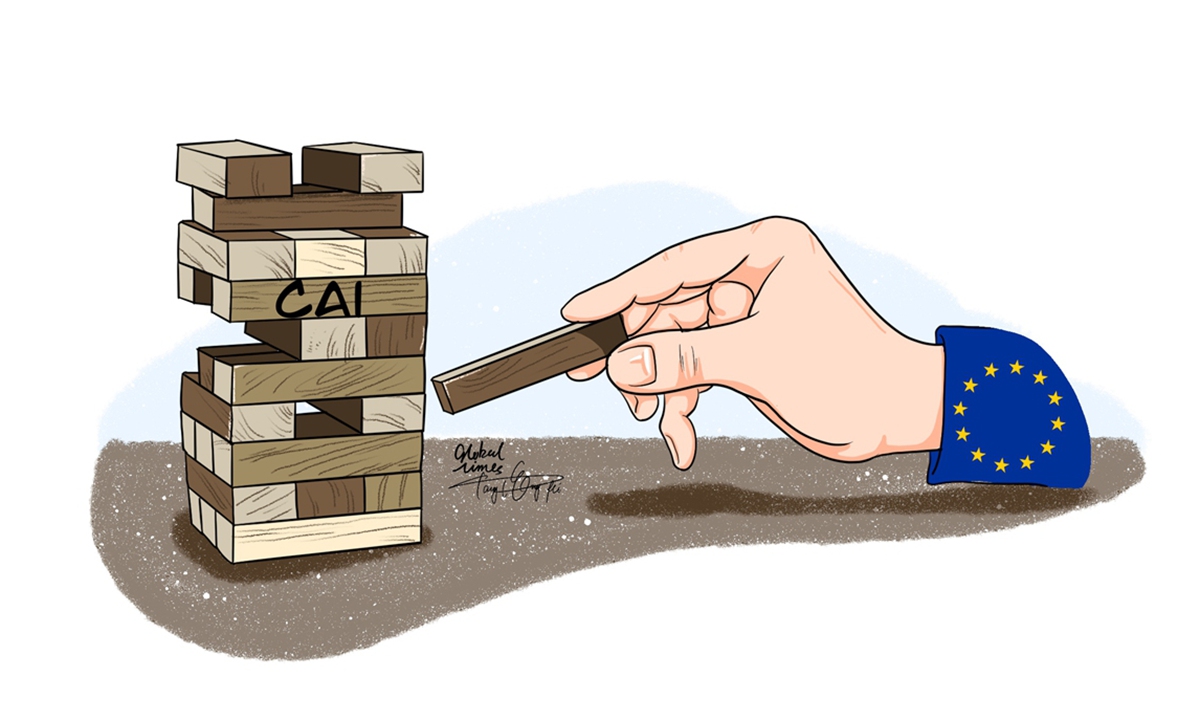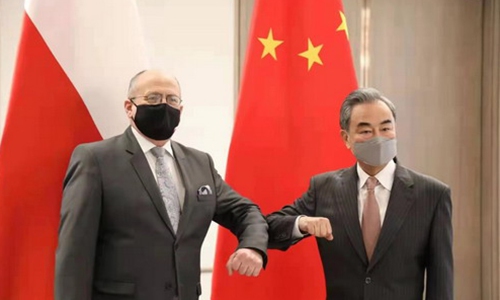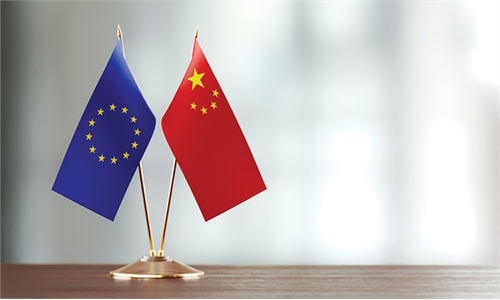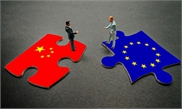
Illustration: Tang Tengfei/GT
The president of the European Council, Charles Michel, defended the EU's efforts to negotiate a Comprehensive Agreement on Investment (CAI) with China by calling the investment deal "a huge step in the right direction," according to an AFP report on Tuesday.
"For the first time we are making a step to facilitate investment by European companies," Michel told reporters.
His comments could be seen as an expression of support for the high-profile investment deal, and the timing is both delicate and intriguing. This is because US President Joe Biden on Wednesday embarked on his first trip abroad since taking office.
It can be expected that in the coming week the eyes of the world will be on Biden's intensive arrangement of summit meetings with European leaders, seeking hints for both future political and economic changes. On Friday, G7 leaders will get together in person for the first time since 2019. On Monday, Biden will meet NATO allies at their first summit meeting since 2018. On Tuesday, he will be the US president for the first US-EU Summit since 2014.
While the eight-day trip seems aimed at repairing ties with traditional allies and partners, there is a growing recognition that no matter how friendly Biden will be, the US will not miss the opportunity to once again exert influence on Europe when it comes to China-related topics. Hindering any progress of the CAI may be high on its anti-China task list.
It is true that the China-EU economic ties has been undergoing complicated situation, but that's not the excuse for the US to put its finger in the pie. Neither the EU nor China wants to see US interference making things worse and less predictable. The US has no standing to intervene in China-EU economic and trade cooperation. And it is believed that Europeans would not like to lose their policy independence and become a pawn in Americans' containment against China.
In the past many years, the EU and China have benefited greatly from closer economic partnership. China overtook the US as the EU's largest trading partner in 2020, which saw trade in goods and services between China and European countries reach nearly $1 trillion, with two-way cumulative investments exceeding $250 billion.
Moreover, a survey released by the European Union Chamber of Commerce in China showed on Tuesday that nearly 60 percent of European companies plan to expand their businesses in China this year, an increase of nearly 10 percentage points from the 51 percent surveyed last year.
Based on the foundation of thriving economic and trade exchanges, the CAI is mutually beneficial and is in line with interests of both sides, which should not be easily dismissed due to some political friction.
In short, politicization should be avoided in China-EU economic ties, let alone the role of any outside forces.



